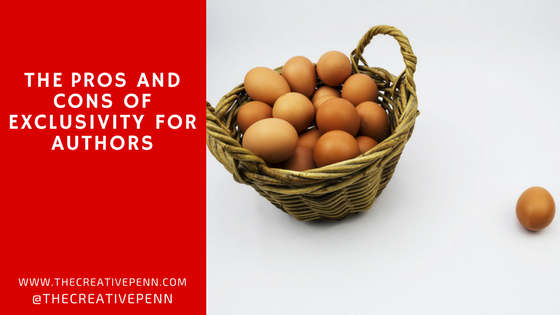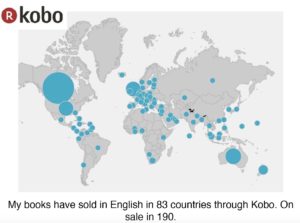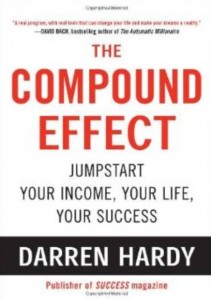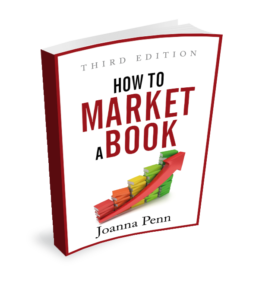“Amazon is the largest bookstore in the world. The second largest is Kindle Unlimited.” Nick Webb, USA Today bestselling science fiction author, quoted from the Science Fiction and Fantasy Marketing Podcast
 Exclusivity for authors means choosing to publish only on Amazon, and when authors refer to publishing wide, it means their books are available on other stores.
Exclusivity for authors means choosing to publish only on Amazon, and when authors refer to publishing wide, it means their books are available on other stores.
This is an excerpt from How to Market a Book Third Edition, available now in ebook, print and audiobook formats.
What are KDP Select and Kindle Unlimited?
KDP Select is an opt-in program available to authors who publish through the Amazon KDP dashboard as well as traditionally published authors who negotiate through agents and publishers.
 There is a check-box per book, and you opt in for 90 days of exclusivity, which is automatically rolled into the next 90 days unless you specifically opt out. To be clear, this means you can't publish the book on any other platform, including your own website, or in any boxsets, during this period.
There is a check-box per book, and you opt in for 90 days of exclusivity, which is automatically rolled into the next 90 days unless you specifically opt out. To be clear, this means you can't publish the book on any other platform, including your own website, or in any boxsets, during this period.
If you opt in to KDP Select, your books are available in Kindle Unlimited (KU), which is a subscription program. Readers pay a fixed amount per month and can borrow and read unlimited books.
It's considered the Netflix for books and encourages unlimited reading within the platform, attracting hardcore readers who would usually have to pay a lot more to read that much. Indie authors can only be in KU if they opt in with KDP Select as above, although some exceptions are made for big sellers.
Authors are paid per page read based on a fixed monthly pool of money that is announced every month.
What are KU readers like?
In April 2017, Written Word Media produced a report on Kindle Unlimited readers based on a survey. They found that KU subscribers are avid readers, with 71% reading more than five books per month. They are more likely to review books they've read than non-KU subscribers and 77% purchase books outside of KU if they like the author. 35% of KU readers cite romance as their favorite genre, but genres dominated by traditionally published big-name authors like James Patterson in Mystery/Thriller are less likely to be in KU.
75% of surveyed KU readers read on a phone, or a tablet, which means that back matter linking to your email list signup can be easily accessed, and effective cover design is even more important.
The benefits of exclusivity
KU is its own ecosystem at this point, with a subset of readers who only buy within the program. If you don't have any books in KU, then you are missing out on this group of readers. Estimates based on the monthly payout put the numbers of KU readers at around three million, although Amazon doesn't share exact figures. The program is being rolled out in the biggest book markets globally, so the number of readers is increasing.
Discoverability is easier because anecdotal evidence suggests that the algorithms favor books in KU. There are also promotional options every 90 days including five days of free promotion, which can be good for getting reviews and Kindle Countdown Deals, time-bound promotional discounting for your book.
For some international markets, you can only get 70% royalty if your book is in KU. As of 2017, this is applicable for Japan, India, Brazil and Mexico. If you’re not in KU, you can only get 35% in these markets, even though you might get 70% in the other countries. Although these are not significant markets for most indie authors right now, they are a big focus for global growth.
Easier to manage changes
Timing promotional price changes across stores is one of the big pain points if you publish wide. You can schedule a price change on Kobo and iBooks, but Nook can take a few days, and Amazon’s speed of change varies between 4-72 hours.
Similarly, if you want to change back matter or fix a typo, you have to do it multiple times on multiple stores. Of course, you can use services like Smashwords or Draft2Digital and update once for all platforms, but I prefer to publish directly for the extra metadata fields I get on the various platforms. If you are exclusive to Amazon, you only have to manage one site and one set of changes per book.
The Drawbacks to Exclusivity
Missing out on the global growth of digital markets

My sales in Canada primarily come from Kobo, and both Kobo and iBooks break sales down into 50+ countries. We haven’t even got started in the massive Asian markets yet!
The Compound Effect

The Compound Effect by Darren Hardy is a fantastic book that describes how little actions taken every day can add up over time to massive change, or massive impact over years.
You can't expect to load your books up on Kobo and expect them to sell straight away. You need time in that market and moving your books in and out of Select will stop you from building readership on the other platforms. I have seen the compound effect on my blog, my online platform and my book sales over the years.
“It can take years to build readership at a retailer. Authors who cycle their books in and out of KDP Select will have a more difficult time building readership at Amazon’s competitors.” Mark Coker, Smashwords.com
Independence and possibility of disruption
I love Amazon.
I'm a successful indie author because of the changes they introduced to publishing, and I'm a happy Amazon Prime customer. But I'm an independent author, and I don't like being dependent on any single income stream because of a previous experience of this kind of dependence.
In early 2008, I was laid off along with four hundred other people in one day from my corporate department. My one source of income disappeared very fast. Few people saw the Global Financial Crisis coming, and we all had to adapt.
Change is inevitable, so I choose to spread my bets amongst the retailers as well as selling directly from my own site. In an interview with Charlie Rose in 2013, Jeff Bezos said that at some point, Amazon itself would be disrupted. He just hopes it happens after he's dead!

I'm in my forties, and I'm not just building for the next year, I’m building for the rest of my life and hopefully leaving something for my family when I’m gone.
As Amazon continues to rise and rise, we see the pushback of many different industries against their domination. Who knows what the next five years will hold?
Dependence on one retailer with the power to change the rules
Some authors have done very well from KU, and some continue to make fantastic revenue from it. But others have seen their income decimated when the rules around KU page reads or categories changed.
Ultimately, you have no control over how much you are paid, and Amazon can change the rules at any time. They have done already, and they will continue to do so because it's their business and they can do what they like.
Make your decision per book based on your personal situation
One of the best things about being an indie is personal choice, but of course, this can make it harder as well. I can't tell you what to do regarding exclusivity, but these are my recommendations.
If you have fewer than three books in a series or aimed at the same market, exclusivity seems to be the best way to go, at least in the initial period. I use KDP Select for my stand-alone books and my sweet romance pen-name.
When you have an established series that you are building over time, using more than one site is my personal choice. The compound effect will mean that over time, as I add books onto the platforms, and reach readers one by one, my sales will grow on the other sites. I also like spreading my income streams, so I am not dependent on one platform for my livelihood.
The more books you have, the more you can play with different options
When you have multiple books, you can adopt multiple strategies. So writing more books in different series for different readers is the ideal situation and then you can have some in Select and some wide. The best of both worlds!
This is an excerpt from How to Market a Book Third Edition, available now in ebook, print and audiobook formats.

